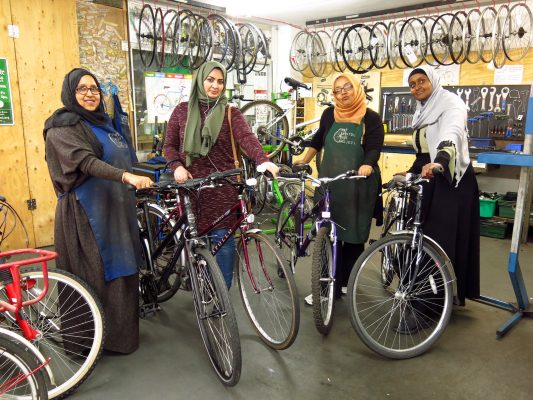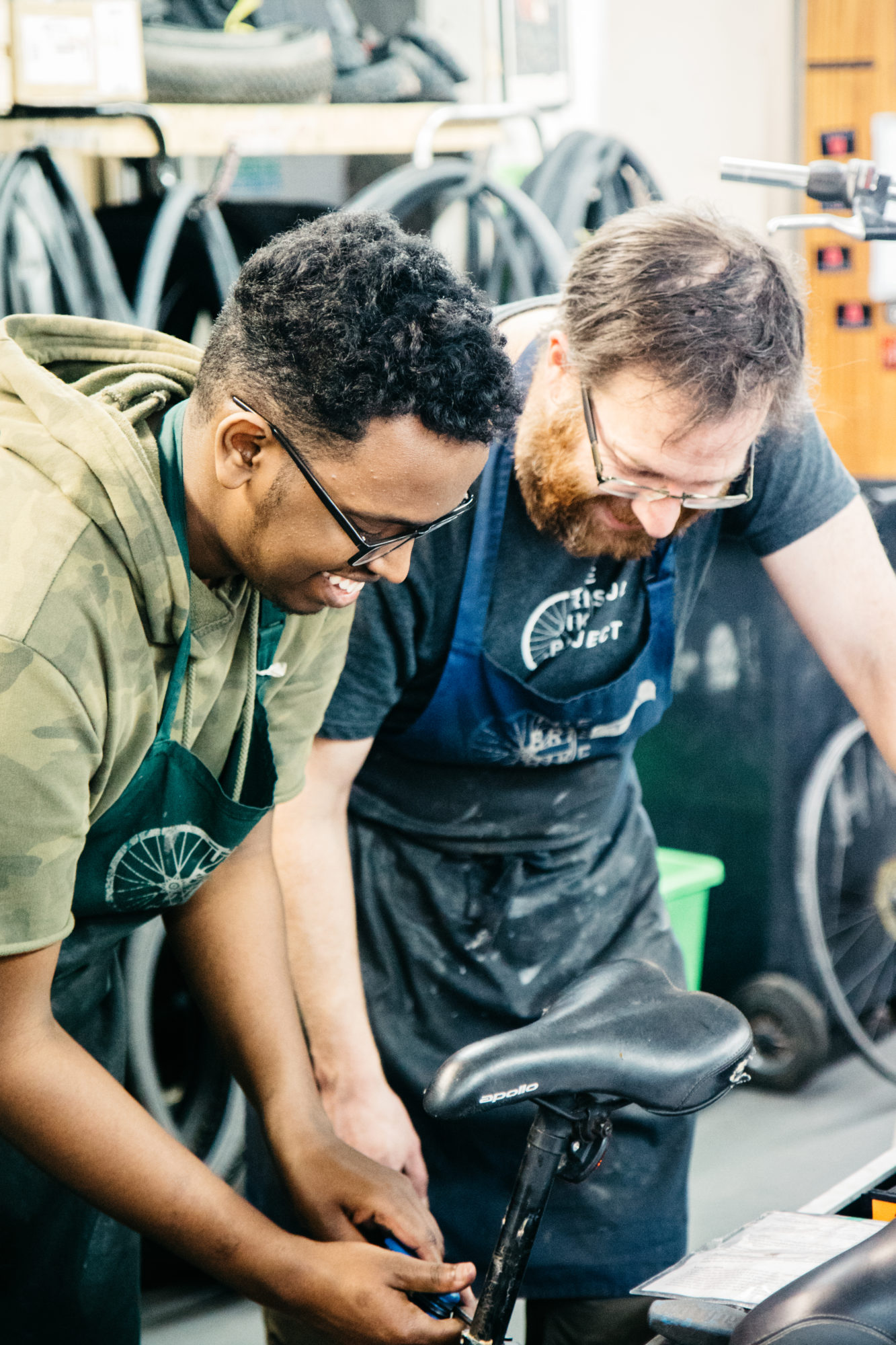This article was written by Alex Seabrook and published in The Bristol Post on 10 June
A group of bike mechanics in St Paul’s have been helping refugees, people on probation, and those recovering from addiction to fix up old bikes.
For around three hours work, people can earn their own bike with the help of volunteer mechanics showing them the skills needed to refurbish unwanted bikes.
The Earn-A-Bike scheme started in 2009 at the Bristol Bike Project, based round the back of Hamilton House off City Road in St Paul’s. Since then more than 1,500 bikes have been earned from the project, and the scheme has a two to three week waiting list.
Henry Godfrey, 43, is a workshop coordinator for the scheme. He said: “I was drawn to this because it welcomes everybody from all walks of life, and is so welcoming to so many different kinds of people.
“It’s great to see refugees working alongside volunteers, rather than being in just a bureaucratic organisation. It’s valuable to help them to get where they need to go, to appointments, to see friends and improve their social life, and travel under their own steam. Rather than being in a strange city, they can find their own way through it and it becomes their own city.”

Every Thursday there are five one-to-one sessions. The scheme is open to people who are unemployed, refugees or asylum seekers, those with ongoing debilitating health problems, learning difficulties, in sheltered housing, undergoing a recovery programme, and on probation.
More than 50 organisations in and around Bristol work with the scheme to refer people to earn a bike, including Bristol Refugee Rights, Bristol Drugs Project, Second Step, Unseen, and the Big Issue.
Tesfanem, a refugee from Eritrea, said: “I like it here, it’s very nice, everybody is very helpful, that’s why I’m happy.”
Ali, a refugee from Iran, said: “It’s a good place. My bike was stolen two weeks ago but now I have got another one from here. It makes such a difference to have a bike.”
No previous experience in fixing bikes is needed for the scheme, and there is an emphasis on empowerment and teaching basic mechanic skills to become more self-reliant.
For around three hours work, people can earn their own bike. While there is no cost for the sessions or the bike itself, the project needs £15 to cover the price of a D-lock and a set of lights.
“A bike is empowering for someone who has no money and can’t afford bus fares. Transport poverty is a big problem in Bristol, and buses are expensive. Some asylum seekers have to sign-in every fortnight at Patchway police station, which is 16 mile round trip. That’s a long walk,” said Mr Godfrey, the workshop coordinator.
“As a refugee you are in the justice system, you have to prove your asylum claim, which is your legal right to be here. The government want to make this country a hostile place to be here, but a bike really is a lifeline for people with such low income.”
Mr Godfrey said: “They are building flats above us, but they’re committed to keeping us here. Although rents are likely to increase dramatically and significantly, we have been well looked after. We’re really happy to stay here.
“C Block has been completely evicted of all the artists and we are the last tenants of C Block. But we really like this community and really want to stay in it, in the artistic Stokes Croft community and the St Paul’s community as well.
“We are funded by the shop, which is open to the public. Some of the bikes are sold to fund activities and we repair bikes for the general public. Grant funding is important but is more difficult now, as the council doesn’t have as much money as it used to have.”

